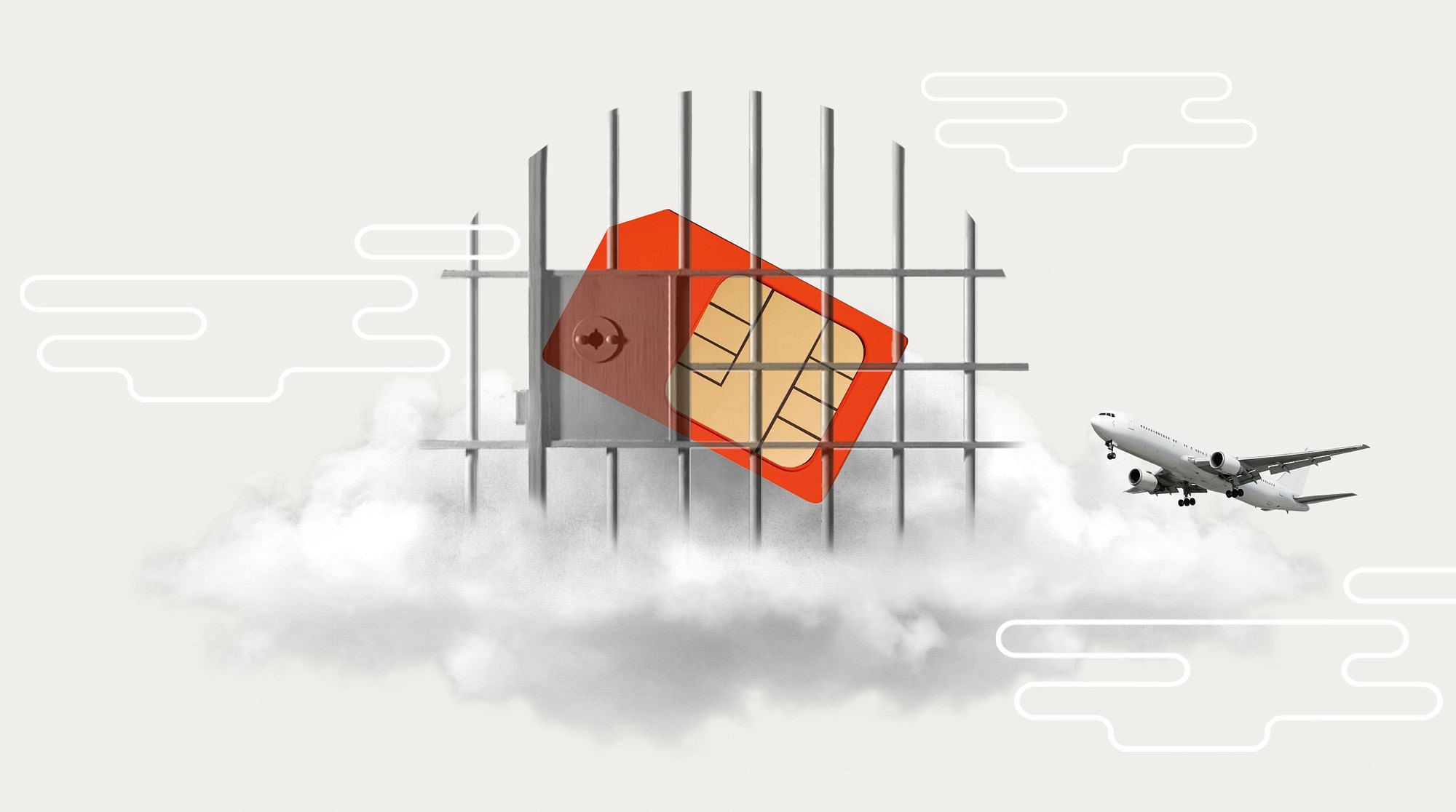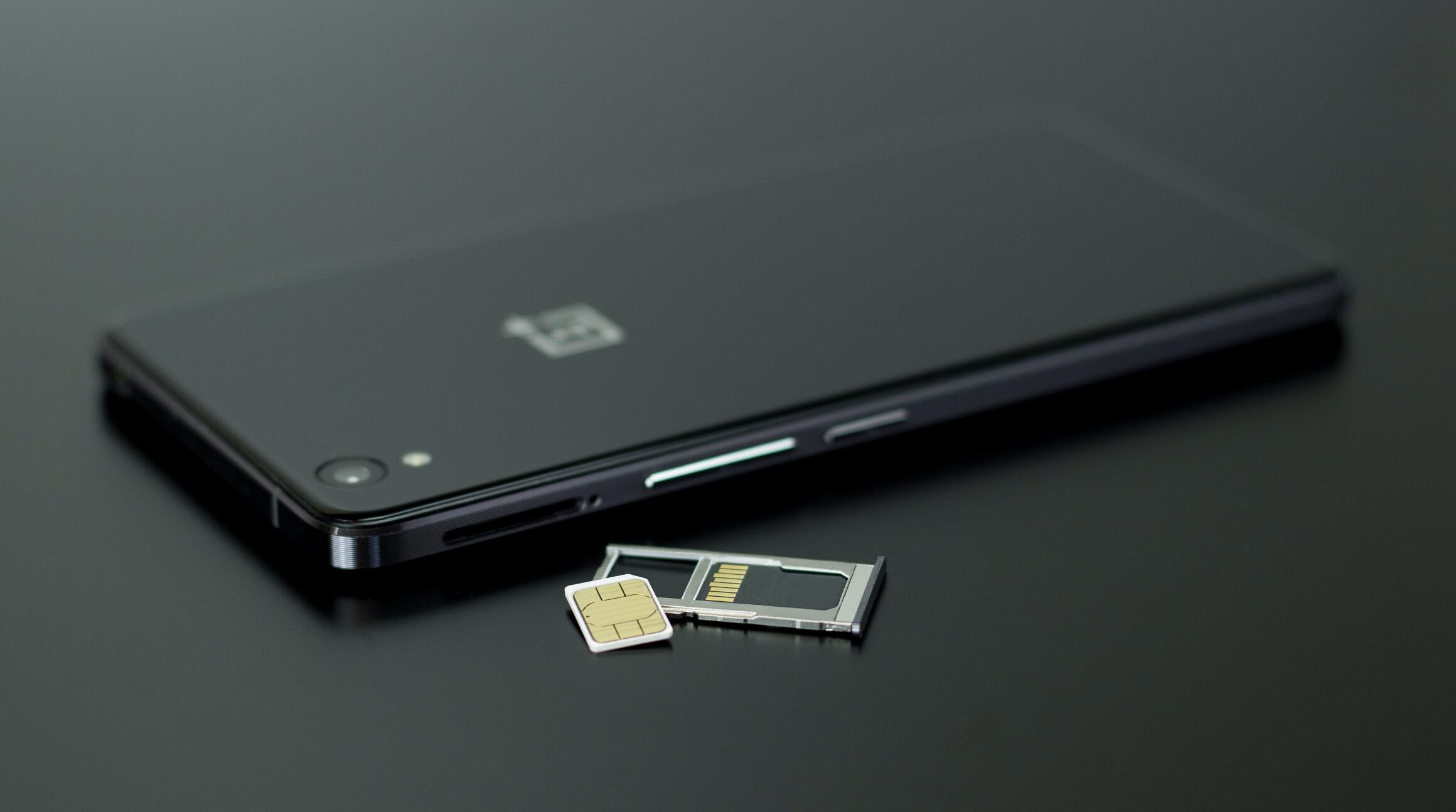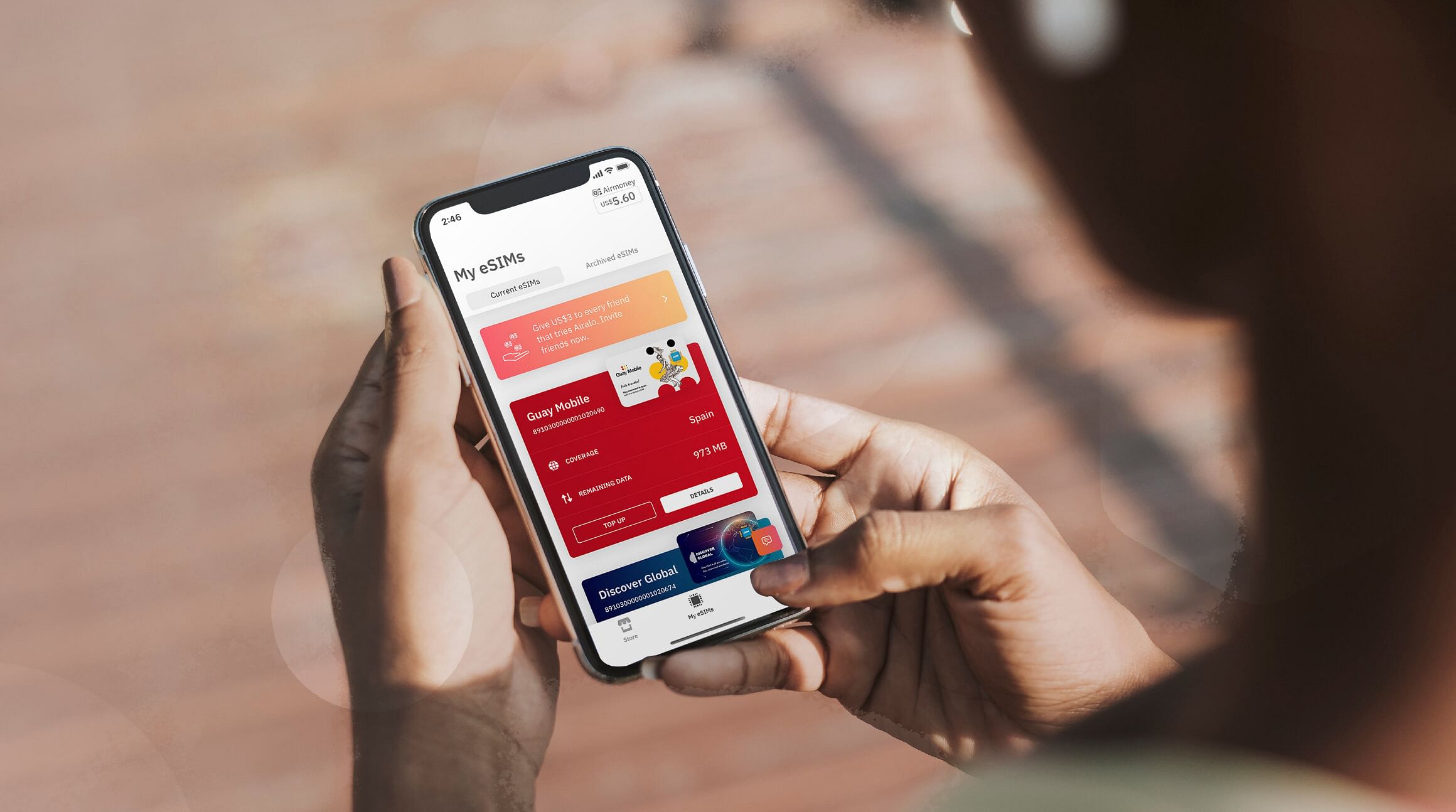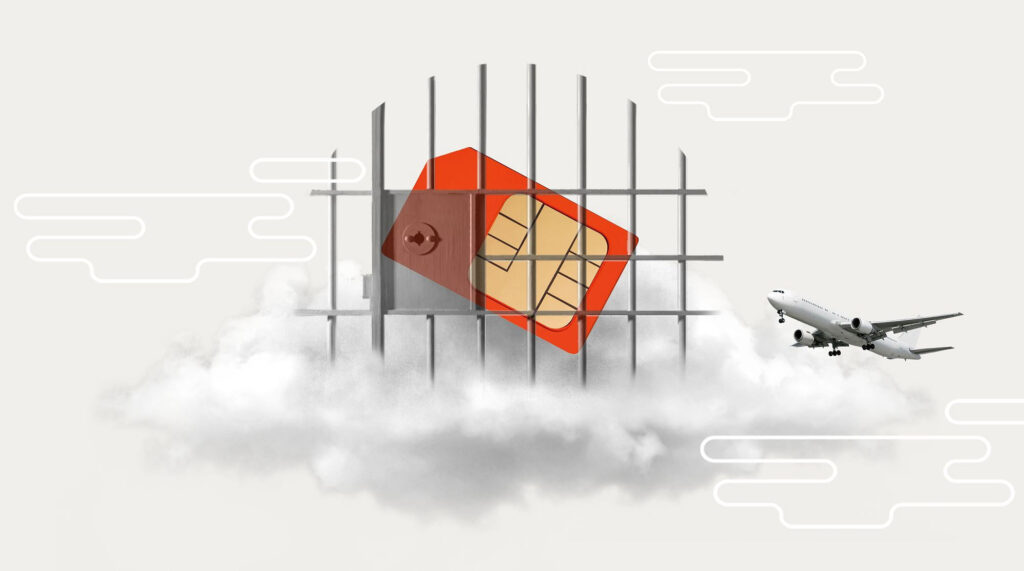No products in the cart.
Uncategorized
What Happens When SIM Cards Go Bad?

When you get a new phone, the natural next step is to get a brand new SIM card or switch over your current one. Traditionally, that’s been a physical SIM card — but should it be?
An eSIM switches it up by making this process 100% digital. Unlike a traditional SIM, an eSIM is embedded in your device and doesn’t need to be swapped out to change providers or networks. You can download a digital data plan, install it on your device, and instantly connect.
So, how does this work? Are eSIMs optimal for the long term? Will we move away from SIM cards? And should we? Here, we’ll dive into the differences between SIM cards and eSIMs, what happens when SIM cards go bad, and the benefits of using an eSIM.
We’ll cover the following:
- How are SIMs and eSIMs similar?
- Dual SIMs and multiple SIMs
- What happens when SIM cards go bad?
- How to tell if your SIM has gone bad
- Benefits of using an eSIM
- Does your phone support eSIM technology?
- Frequently Asked Questions

How Are SIMs and eSIMs Similar?
SIM cards and eSIMs serve the same function. No matter how a SIM (subscriber identity module) is constructed, it does a few key things:
- It gives your device access to a mobile data network
- It allows you to use text and call services*
- It verifies your device’s identity and the network(s) you can connect to
You can think of a SIM as a digital license plate for your mobile network. It’s what verifies you as a mobile subscriber and grants you access to your carrier’s network.
*Most eSIM plans are data-only. You can check the details of your eSIM plan to find out if it also has call and text services.
Dual SIMs and Multiple SIMs
Most devices these days have Dual SIM support. Dual SIM technology allows you to store more than one SIM and/or eSIM on your device and connect to two different networks simultaneously.
A few ways to use Dual SIM technology include:
- Add a local data plan when you travel
- Use one plan for voice and another for data
- Keep separate business and personal numbers on the same phone

What Happens When SIM Cards Go Bad?
The biggest problem with a physical SIM card is that it’s physical. A physical SIM has exposed connectors that are prone to damage. When you handle a SIM card, you risk snapping, bending, scratching, or breaking it. There are also risks of card degradation and loss of function over time.
Here are a few SIM card problems to consider.
Problems with Water Damage
One of the most common reasons a physical SIM will stop working is corrosion or water damage. Excess water, spraying, splashing, or submerging can be enough to damage a physical SIM and prevent it from working. Spillage with corrosive or hot liquids also risks damaging a SIM card if they leak into the SIM tray.
Problems with Heat Damage
Excessive heat damage can also ruin the pins on a SIM card. Leaving your phone near a heating vent, on a window ledge during a sunny day, or on a patio table in the sun can be enough to expose it to heat damage.
Problems with Shipping
You can also face manufacturer issues. Any card that’s shipped or delivered carries a risk of being damaged or malfunctioning.
How to Tell if Your SIM Card Has Gone Bad
If you suspect your SIM is having connectivity problems, you can troubleshoot by testing these areas:
- Can your phone still connect to your local network or mobile data?
- Do you send and receive text messages immediately, or is there a delay?
- Can you make and receive phone calls?
- Is your phone trying to switch providers or connect to new networks?
If you’re still unsure, you can always eject the physical SIM from your device and examine it for pin corrosion or damage to its shape.

Benefits of Using an eSIM
There are several benefits of using eSIM technology. Here’s a closer look at why you might want to switch from a physical SIM card to an eSIM.
Damage Resistant
Since an eSIM is built into your phone, the risk of external damage or card tampering is virtually zero. Wherever your device goes, your eSIM goes.
More Secure
It’s much easier to hack a physical SIM card than an eSIM. Personal information is better protected against hacking and tampering, and bypassing phone protocols is much more difficult.
Store Multiple eSIMs
You can download and store more than one eSIM profile on your device. You can download a French data plan, an American data plan, or a Japanese data plan and have instant access when traveling to those destinations.
Avoid Roaming Charges
Say goodbye to expensive roaming fees. When you buy an eSIM plan from Airalo, you pre-pay for a set amount of data. If you run out of data, you can top up your package or purchase a new plan. There are no hidden fees, and you won’t come home to a surprise roaming bill.
Easy and Affordable Connectivity
eSIMs give you access to instant connectivity. You can download a plan from the comfort of your own home, install it on your device, and be up and running in minutes. And, Airalo’s rates are market-competitive. You’ll pay the same rates as a local in 200+ countries and regions worldwide.

Does Your Phone Support eSIM Technology?
To use an eSIM, your device must be carrier-unlocked and eSIM-compatible. Not sure if this applies to you? Here are a few ways to find out.
- Consult our list of eSIM-compatible devices.
- Check with your carrier to see if your device is unlocked.
- Consult your device’s IMEI number to see if your phone supports an eSIM. Tap Settings, search for IMEI, and look for terms like “eSIM” or “digital SIM card.”
- Dial *#06# from your phone app to find out if your phone is eSIM-compatible.
Ready to switch to an eSIM? Browse eSIMs for 200+ countries and regions worldwide in the Airalo store.
Frequently Asked Questions
Can a SIM card go bad?
Yes, a SIM card can go bad or become damaged over time. Several factors can contribute to a SIM card malfunction, including physical damage, excessive heat or cold, age, accidental removal or insertion, and manufacturing defects.
How does a SIM card get damaged?
A SIM card can get damaged due to physical stress, such as bending or scratching. Exposure to extreme temperatures, moisture, or improper insertion/removal from the device can also lead to damage. Manufacturing defects or the natural aging of electronic components over time may contribute to SIM card malfunction.
How do I know if my SIM card is bad?
If your phone displays messages like “No SIM card,” “Invalid SIM,” or if you’re experiencing constant network issues despite a functional network, your SIM card might be bad.
Can a SIM card get water damage?
Yes, a SIM card can get water damaged. Water exposure can lead to corrosion and interfere with the electrical connections on the SIM card. If a SIM card has been exposed to water, it’s advisable to let it dry completely before attempting to use it again, but there’s a risk that water damage may have already occurred.
How to clean a SIM card?
To clean a SIM card, gently wipe it with a soft, lint-free cloth or use a small amount of isopropyl alcohol on the cloth for more thorough cleaning. Ensure the SIM card is completely dry before reinserting it into the device. Avoid using water or abrasive materials, and handle the SIM card carefully to prevent damage.
What does a SIM card do?
A SIM card, or Subscriber Identity Module, is a small card inserted into mobile devices to authenticate and identify the user on a mobile network. It stores information like the user’s unique identification number, mobile network credentials, and contacts. The SIM card enables voice and data services, allowing users to make calls, send texts, and access mobile data while connecting to a specific cellular network.
How long do SIM cards last?
The lifespan of a SIM card varies, but they are generally durable and can last for several years. However, factors such as physical damage, exposure to extreme conditions, or manufacturing defects can affect their lifespan.

